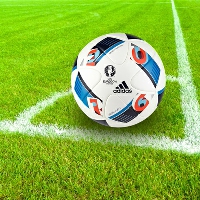Pupils are more or less likely not to do homework, and the reasons why students do not do homework are various. In the face of children's bad learning attitude, parents must correctly guide children and help them develop good learning habits.
How to punish pupils for not doing homework
1. Isolation method. When students can not complete their homework in time, take decisive measures to timely eradicate the soil for students not to do homework and nip the seeds in the cradle. It must not be allowed to form a climate, form small groups and let them spread. Children should realize that learning is their own business and gradually learn to control themselves.
2. Cold treatment and heat treatment. "Cold treatment" means not busy dealing with students who do not do homework, but first observe, understand, and beat around the bush to stir up ripples in children's hearts. This method is generally applied to students with strong motivation. They can realize their own mistakes from teachers' words and deeds, and carry out self-examination and self correction.
"Heat treatment" is generally used for students with poor self-consciousness. They generally haven't realized the harm of not doing homework. Or I know that I can't control myself. For such students, we should shout loudly and hit them in the head. Carry out a "heavy fire" attack of the "bombardment" type, making him wake up and "repent".
3. The primary school students who refuse to do homework must be carefully supervised to find out the reasons why they do not do, do less and miss doing homework, do patient and careful ideological work, and do serious guidance and correction. If possible, implement "preferential policies", and it is better to take face-to-face approval for their work.
In face criticism, neither appeasement nor harsh reprimand or corporal punishment, nor corporal punishment in disguised form, shall be allowed. The method of punishing people to do a lot of homework is no different from climbing mountains with heavy loads, and its effect can only be counterproductive. It is also not advisable to let them leave school late. If you learn that parents have unkind and rude practices of beating and scolding their children, not allowing them to eat, not allowing them to rest on time, you should timely advise them.
The root cause of pupils' unwillingness to do homework
1. Children are not interested in learning. For children who love learning, parents don't have to say much. After school, they will consciously open their schoolbags, take out their homework books and complete their tasks. This is because they are interested in learning and willing to learn. For children who are not interested in learning, or even bored, doing homework is a kind of torture, so it is natural not to do it.
2. Parents' high requirements and expectations. Some parents expect too much of their children and always compare their children with those with excellent performance to force them to strive hard. But children can't bear the pressure, so they will subconsciously "escape", and avoiding homework is also one of the ways of expression.
3. The child is in a bad mood. Some trivia in life may also cause children not to want to do homework. For example, children may become bored with teachers and subjects they don't like, and they will be afraid to avoid homework related to them. Parents need to learn to distinguish the specific reasons why children do not do homework, so as to suit the remedy to the case.
4. Insufficient self-discipline. If children are not self disciplined enough and always have a fun mentality, they will subconsciously avoid the "hard work" of doing homework.
5. Children's rebellious psychology. Everyone's endurance is limited. If it exceeds the limit, it may lead to rebellious psychology. If parents always urge and force children to learn and do homework, children may choose to do the opposite and deliberately disagree with their parents if they are tired of listening too much. In other words, parents should not press too hard on children's learning problems, or the results may be counterproductive.
What can we do to increase the interest of primary school students in homework
1. Let children choose the time to do homework. When your child comes home, when you ask him when he will do his homework, he will usually say that he will do his homework after playing. When he comes home, he will play. He can discuss with his parents to do his homework after playing. Agree a play time with your child. If the child's wish is satisfied and he is asked to do his homework, the child will not resist at this time.
2. Encourage children appropriately. Children like to be praised. If children do not get praise from their parents, they feel that parents are a kind of attitude whether they do well or not. Therefore, encouragement and praise to children are essential.
3. Let children work and rest together. Some parents do not allow their children to do housework and hope that their children will concentrate on their studies. This idea is incorrect. Parents can let their children do some housework and let them work and rest together.
4. Parents should be trustworthy. Some parents promise their children what kind of rewards they will get when they achieve what kind of achievements. When the children meet the requirements, the parents are not trustworthy, so the children will think that the parents are not trustworthy, and they will no longer learn and do things as agreed.
When children were young, they didn't know the use of reading. They only took learning as a task. Only when children were older could they know the benefits of reading. Parents' honesty is the best incentive for children.

